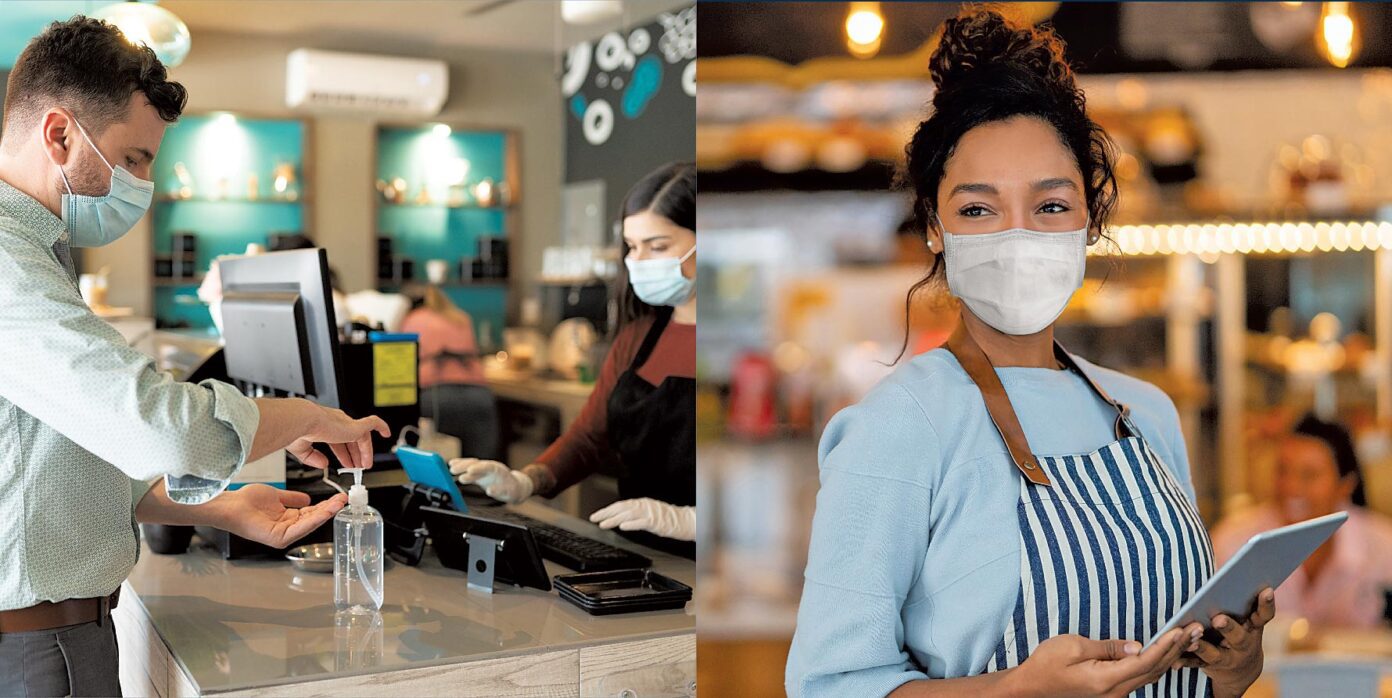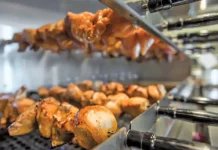
If this pandemic has done anything in our industry, it’s been not only to highlight, but more so to underscore just how important health and safety truly are in our line of work.
Health and safety are not just the tedium of wiping down tables with a used rag and generic disinfectant or mopping the floor once at the end of the day.
We are all thrilled with the recent news that New York City’s restaurants have been given the green light to once again welcome guests.
I know local restaurant and foodservice operators have lots on their mind as they get set to re-open, so I wanted to see if we could help you create and execute a simple cleaning strategy that focuses on health and safety.
The protection of guests, staff, and other visitors to the establishment are the first and foremost indicator of a business’ regard for both their customers and their employees.
Furthermore, as we all work to generate numbers that help our capacity move from 25% to a full house, it is more important than ever for restaurants to make sure they are not only up to par, but go above and beyond every mandate, standard and protocol laid out before them.
The first step every business should take is to provide their staff with a proper education. High tech apparatus, disinfectants, and other tools are all useless without the proper knowledge bases to use them.
At Imperial Dade, we have always taken the approach that an effective cleaning program is more than the products used. It is also about best practices and training.
Every business needs to comprehensively review all guidelines and requirements laid out for their area of operation. Every state, county, and city may have their own unique guidelines and mandates that need to be adhered to.
Factors like capacity, social distancing between tables and bar seating, and comprehensive PPE requirements are all crucial when it comes to making sure one’s setup is compliant.
It’s impossible to know one’s operation is compliant without knowing what the rules are, so this is the logical first step.
Our next suggested step is to create a formal cleaning and disinfecting plan for both the front of the house and the kitchen. This includes making sure all disinfectants used are on the EPA’s N-list.
This N-list contains all approved disinfectants proven to be effective against the pathogens that cause the Coronavirus. The list is updated as new products are approved.
Creating a comprehensive plan also includes determining which of the staff will be involved in the cleaning process. Before the pandemic, these tasks were often assigned to an individual.
Now an effective regimen will likely require all hands-on deck. It may even be prudent to elect sanitation leaders for each shift, to create more of a structure and chain of command.
Of course, this is all assuming the staff has been formally trained. Every business should set aside a block of time specifically to train their staff in these practices such as the HyProtection Zone Program developed by Imperial Dade.
Every member of the staff should know what, why, how, and when cleaning and disinfecting tasks should be completed.

A misconception I commonly see is that many people believe disinfecting and cleaning are one and the same. The two activities are certainly related, however they are two separate steps within the process.
Cleaning is the removal of soils and other refuse from a surface. This must always be done first to ensure the subsequent disinfecting is effective.
Disinfecting is the proper use of cleaning solutions to eliminate pathogens, most notably in this case those that cause Covid-19. Cleaning without disinfecting, or disinfecting without cleaning first, are both ineffective.
Effort should also be put into creating a communications program to share with customers what is being done to keep the indoor environment safe.
This can include signage, social media posts, and information shared on a website. The more confident customers are that the establishment is clean and compliant, the more likely they will be to return to the business.
Just the same, if it is evident that certain standards aren’t being met, word will travel fast, and the business’ reputation can be damaged.
Next, let’s consider what the impact that getting this right is going to have on your P&L. For instance, think about the cost associated with the time needed to clean and disinfect a table every time it turns.
An important factor in that process is dwell time. Dwell or contact time is the amount of time a disinfectant needs to remain wet on a surface for it to be completely effective in eliminating the contaminants.
This means that wiping off a disinfectant before its’ dwell time is up makes the entire practice ineffective. Dwell times are always found on manufacturers’ labels, and vary from product to product, most ranging from 1-10 minutes.
The chemical label includes all the necessary safety information and instructions. Labels are required by law, so even if you mix concentrated chemicals on site you must add an official secondary label to the spray bottle. These labels should be provided by your distributor.
Owners should always aim to use disinfectants with dwell times as close to one minute as possible in order to maximize turnover. Imperial Dade offers several brands of EPA-approved disinfectants with 1-minute dwell times specifically designed to tackle Covid-19.
Beyond actually putting all these steps into practice, owners should also be sure to document their cleaning program. A detailed paper trail can protect employees as well one’s business from potential litigation.
It’s also simply a great way to keep track of what has and hasn’t been done.
Owners should also take specific care to keep restrooms spotless and orderly, with sufficient paper supplies and hand soap. Many surveys have shown that simply having a dirty bathroom can singlehandedly repel customers.
We also suggest having hand sanitization units spread throughout the dining space not only makes it easier for both staff and customers to clean themselves more frequently, it also sends a direct message to both, acting as a physical monument to the fact that safety is a number one priority.
After a year of gloves and masks, you know that proper PPE is integral and mandatory. Staff should wear masks at all times and gloves when appropriate. Have a supply of disposable masks available in the event that a forgetful customer arrives.
This reduces that chance that businesses need to turn customers away.
Many business owners often ask how they can incorporate these steps while still facilitating a ROI. The simple answer is this: Health and safety isn’t a matter of whether or not you can make a return.
Health and safety aren’t optional in our current environment. You follow these guidelines first and worry about ROI later.
A business that makes health and safety decisions based on how they can make or save money is not only risking their entire business, but the lives of their staff and every customer that enters the restaurant.
Enacting these best practices will pay for itself. Because employees are safer from becoming ill at work, there will be less callouts, and increased safety measures will draw more customers who see that the business in question is making an effort.
Finally, whether or not indoor dining is re-opened, and to what capacity, will be determined by how well the industry as a whole comes together and does its best to meet these standards.
Businesses that try to skimp out not only hurt themselves and their customers, but also every other business that is doing its best. It is every business’s duty as a part of the industry to make health and safety a priority.
Thankfully, there are plenty of resources and our Imperial Dade team is available to help.























